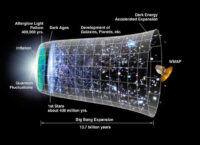A recent article in The Atlantic about seabed mining points out that the metals targeted for collection include copper, manganese, nickel, and cobalt, all used in the production of batteries. The impetus for this sudden industrialization of the ocean bottom, in part, is carbon emissions, and the growth of battery-powered devices like electric vehicles. The other reason, of course, is profit. The metalic nodules at the deepest recesses of our oceans range from marble to grapefruit size, and technology has advanced to the point where underwater mining equipment can withstand pressures 200-times greater than surface pressures.
It was once believed that no life forms could exist in the deepest trenches of the sea, but that belief has been proven false. Ecosystems of unique creatures do indeed inhabit these other-worldly realms, and the likelihood of their destruction is great as the rush to harvest metal nodules increases. The irony in all this is that battery-powered electric vehicles are now being hailed as a major way to solve our greenhouse gas emission problem, when it’s adapting to hydrogen as fuel that’s the far better and emissions-free solution. In typical fashion, we attempt to solve one problem by generating another.
What gets far too little attention, however, is the consumer lifestyle that fuels the consumption of automobiles, and the degree to which human society is now addicted to expensive modes of personal transportation. That addiction is furthered by the physical structure of human society itself, how homes, places of work, schools, and the infrastructure that surrounds us has been influenced by and for dependence upon automobiles and inexpensive fossil fuels.
Dependence upon automobiles is linked at a deeper level to matters of personal autonomy and the modern imperatives of time. At its most basic, freedom of movement is inherently a property of animal life; the ability to move is an inborn element of survival and thus our personal attachment to autonomy through the use of the automobile is deep-seated. The modern imperatives of time, however, are not inherently inborn; rather, our relationship to time is socially constructed and dictated. Most of us live and die by the clock.
In a clock-driven society where time is money, patience is poorly cultivated, and accordingly this breeds habits of instant gratification. Our desires for instant gratification are vigorously pursued by businesses and opinion-makers, all of whom futher their own profits by exacerbating our impatience. With each passing decade, we’ve witnessnessed the erosion of abilities to suspend emotional outcomes; speediness has become a virtue. Faxes yeilded to email, email to texting; standard mail yeilded to airmail, airmail to Fed Ex overnight delivery; overnight delivery yeilded to Amazon’s same day delivery. With each iteration, our ability to be patient shrinks, and commerce invests in ever faster modes to satisfy our growing impatience.
Now that we’ve enjoyed the conveniences of the modern world in the pursuit of satisfying our desires, giving up desire and instant gratification will be extremely difficult; this shift is exactly what’s necessary. Replacing gas-guzzlers with other types of personal vehicles is simply another way to continue to enjoy a sense of autonomy and instant gratification, and the continued destruction of the ecosphere — progress — is the price we pay. This is the harsh message of 16-year-old Greta Thunberg: that a fundamental shift in human culture must happen to avoid environmental calamity, that we must stop living in a fairytale, wake up and own-up to the true seriousness of our situation.





Be First to Comment